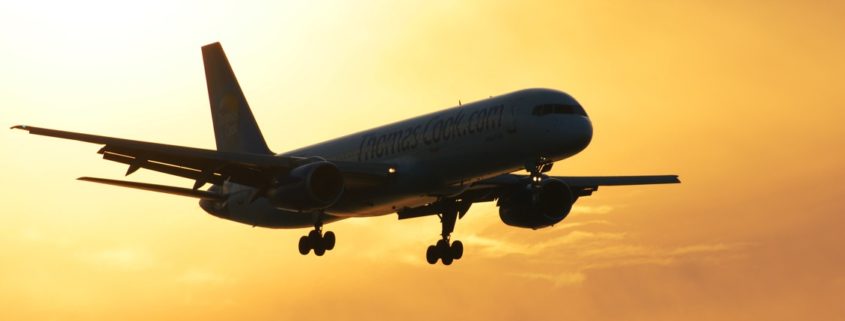Thomas Cook Collapse: How to Get a Refund
Thousands Stranded. Thousands More With Plans in Limbo. What’s Next?
Thomas Cook isn’t the first major travel brand to go bust in recent years. We saw Icelandic carrier Wow Air close down suddenly in March, and just two years ago another UK travel giant, Monarch Airlines, shuttered unexpectedly, leaving 110,000 Britons stranded abroad. But what sets the Thomas Cook closure apart is the sheer scale of the incident. Now, thousands of consumers are asking what happens next, and how do they get their Thomas Cook refund?
What Happened to Thomas Cook?
The 178-year-old company was a cornerstone of the European travel market, employing 21,000 people around the world. That fact couldn’t save the brand from bankruptcy, though. Although the company had been in turmoil, Thomas Cook’s closure still came as a shock to many. It will go down as the largest collapse of any UK travel company in history. So, how did it happen?
Well, according to Investment Week, here is the timeline of significant events in the lead up to the closure:
- 2011: Thomas Cook arranges a £100 million credit agreement with its bankers. Shares in the travel agent nosedived by 75%, which it said was also due to “political unrest”.
- 2012: Harriet Green appointed CEO in July, unveiling cost-cutting plans for the future of the company. This includes closing 199 out of 1,069 UK stores.
- 2015: Fosun Tourism Group first acquires a stake in the company.
- 2016: Thomas Cook misses profit targets in July, as a result of declines in bookings to Turkey, Egypt and Tunisia following terror attacks.
- 2018: The company’s share price falls by 29% to its lowest level in six years, following a warning that profits were likely to be 30% lower than expected.
- 2019: Fosun Tourism Group agrees to a “rescue operation” with Thomas Cook in August, which involves “complete financial restructuring”.
Under UK law, a company who declares bankruptcy will typically go into administration. This means leadership of the company will be taken over by a third party who is tasked with either rescuing the firm, or arriving at the best possible outcome for all stakeholders.
Unfortunately, the deal reached with Fosun Tourism Group failed to bail out the struggling company. No deal was reached to secure emergency funding to prevent the company’s bankruptcy by midnight on September 22. Thus, Thomas Cook went into administration, its planes were immediately grounded and impounded at airports around the UK, and the liquidation process began.
Consequences of Thomas Cook’s Collapse
Looking at the immediate aftermath, some 600,000 people were traveling abroad when Thomas Cook suddenly shut down.
Of these, travelers, roughly 150,000 were UK citizens, leading the government to coordinate the largest peacetime repatriation of citizens in the country’s history. It wasn’t a cheap effort, though, costing the UK government £100 million thus far. Travelers from outside the UK will likely need to finance their own return trips, or look to their governments for help.
In addition, the government will need to fund a further £60 million to cover unpaid wages of former Thomas Cook employees.
And, of course, the company’s implosion leaves thousands more travelers who now find themselves out thousands of pounds on vacation plans that suddenly went up in smoke. So, how can these consumers recover their funds?
Getting a Thomas Cook Refund
Thomas Cook refunds are available for UK travelers who made an ATOL (Air Travel Organizer’s License)-protected booking with the company. The procedure for claiming a refund through this channel will vary based on certain circumstances.
If you have an ATOL-protected booking and are entitled to a refund, you will likely have your refund processed automatically. There is more information about these specifics located on Thomas Cook’s former website. In most cases, you will receive a refund within 60 days.
Of course, not all consumers’ holidays were ATOL-protected. For consumers that are not protected, we recommend you contact your bank. After explaining the situation, you should be able to file a dispute against the charge (a practice commonly known as a chargeback).
Keep in mind, though: you should only file a dispute if it is under legitimate circumstances. Attempting to dispute a charge without proper justification—a practice known as “friendly fraud”—can carry consequences. Depending on the circumstances, your bank might reject the dispute, or even close your account for abuse. This would negatively impact your credit going forward.
Thomas Cook is not the first travel brand to go under. If this happens again, the same basic process will be applicable.



